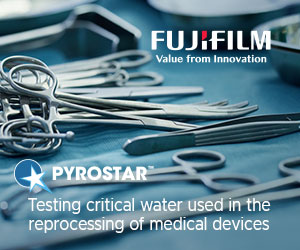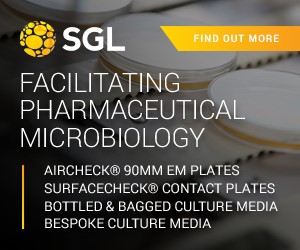Amplidiag® Easy Mul...
Zone Reader, Peni Cy...
24th January 2017 Content supplied by: ID Genomics
Database for Genetic Fingerprint and Antibiotic Susceptibility from Active Infections
ID Genomics, Inc. has announced the formation of a national consortium of clinical partners to help increase the rapidity and accuracy of infectious disease diagnosis and antibiotic treatment through the company’s novel DNA-based “bacterial fingerprinting” diagnostics system.
The initial consortium was formed under a grant from National Institutes of Health and includes the Group Health Cooperative, Seattle Children’s Research Institute and Harborview Medical Center in Seattle; Los Angeles County Medical Center and Keck Medical Center of the University of Southern California in Los Angeles; NYU Langone Medical Center in New York City; and Hennepin County and Veterans Affairs Medical Centers in Minneapolis.
ID Genomics works with its consortium partners to catalogue genetic ‘fingerprints’ and antibiotic susceptibility of bacterial strains isolated from patients with active infections. These strains will expand the ID Genomics database and, thus, the test’s diagnostic accuracy. The database will also provide localized data insights for clinical partners, highlighting unusual patterns of drug resistance or outbreaks.
The participation of consortium partners is critical to increasing ID Genomics’ efficacy as a global resource for information on infectious disease agents and treatment options, and as such, the company is seeking additional clinics, labs and health care providers to join this global effort.
ID Genomics’ proprietary technology is comprised of CLoNeT™, a rapid diagnostic test that assigns unique microbial DNA fingerprints to quickly determine the clonal identity of a bacterial strain in patient samples, and BactNeT™, a database that links CLoNeT™ fingerprints with responses to all commonly prescribed antibiotics. Together, they enable health care professionals to prescribe the most optimal antibiotic for a patient within half an hour, compared to the current 48-hour wait period.
“Each fingerprint link in BactNeT™ effectively tracks the medical history of different bacterial strains locally, nationwide or globally,” said Evgeni Sokurenko, Professor of Microbiology at the University of Washington, Seattle, and Founder of ID Genomics. “This resource enables doctors to quickly and accurately recommend treatment plans, helping to save the lives of thousands of patients and reduce billions in medical costs associated with antibiotic resistance.”
ID Genomics’ revolutionary approach has been tested at the Group Health Cooperative in observational clinical trials, which show that the company’s technology reduces the rate of empiric antibiotic treatment errors from almost 30 percent in some clinical categories to less than 5 percent. The process ensures that prescriptions are precisely tailored for both the patient and the infecting strain, and promotes antimicrobial stewardship by ensuring that antibiotics are used appropriately.
In addition to guiding the appropriate treatment regimen, BactNet™ can provide real-time epidemiological surveillance that is expected to track the spread and emergence of new and existing drug-resistant ‘superbugs’. With its ability to respond to patient needs while simultaneously detecting global infection dynamics, the BactNet™ network is the first precision surveillance mechanism of its kind.
“The importance of having such a universal epidemiological surveillance resource linking bacterial DNA fingerprints with drug resistance profiles as part of point-of-care diagnostics can’t be overstated,” said James R. Johnson, M.D., who is Professor of Medicine at the University of Minnesota and an infectious diseases specialist at the Minneapolis VA Medical Center. “With this novel approach, the global health community will have a powerful new tool to rapidly diagnose, treat and contain the spread of multidrug-resistant bacteria, and also to identify drug-susceptible strains that can be treated safely with traditional, inexpensive antibiotics.”
Date Published: 24th January 2017
Source article link: View
Amplidiag® Easy Multiplex PCR Direct
Zone Reader, Peni Cylinders & Dispenser






